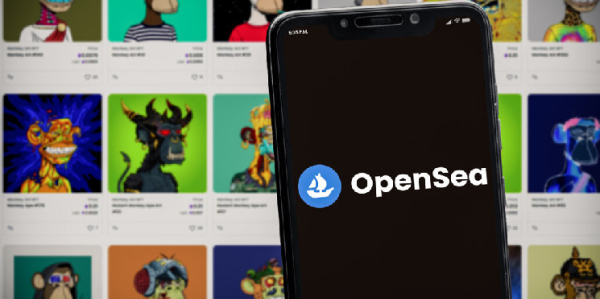Mark Cuban, Yuga Labs Lead Backlash Over OpenSea’s NFT Royalties Change

Mark Cuban and Bored Ape Yacht Club creator Yuga Labs were among the major players speaking out Friday against NFT trading platform OpenSea, over the company’s Thursday announcement that it intends to sunset enforcement of creator royalties.
“Not collecting and paying royalties on NFT sales is a HUGE mistake by OpenSea,” Cuban, the billionaire tech entrepreneur, wrote on Twitter Friday. “It diminished trust in the platform and hurts the industry.”
Cuban’s words generally carry some weight in the NFT space, given the Dallas Mavericks’ owner’s public profile and longstanding involvement in the crypto industry.
But they likely stung even more given the fact that Cuban is himself an OpenSea investor, who participated in the company’s $23 million Series A funding round in 2021. The NFT marketplace is currently valued at $13.3 billion, following a Series C fundraise last year.
On Thursday, after months of build-up, OpenSea announced its plans to stop enforcing mandatory creator royalties—charges typically ranging from 2.5% to 10%, which are tacked on to secondary sales of NFTs and paid to creators.
Not collecting and paying royalties on NFT sales is a HUGE mistake by @opensea. It diminished trust in the platform and hurts the industry. And I say this as an @opensea investor @DevinFinzer
— Mark Cuban (@mcuban) August 18, 2023
The move was largely seen as a capitulation to competition from other NFT marketplaces that have also slashed creator royalties in efforts to woo buyers. OpenSea CEO and co-founder Devin Finzer had previously vigorously defended creator fees as essential to upholding the rights of artists.
Joining in Cuban’s condemnation of OpenSea’s decision on Friday were the creators of several high-profile NFT projects, including Yuga Labs. In response to the policy change, Yuga Labs plans to begin the process of sunsetting its compatibility with OpenSea.
A Yuga Labs spokesperson confirmed to Decrypt that this means the company will, by February 2024, disallow OpenSea from trading both new Yuga projects and any that have upgradeable smart contracts. To date, sales of Yuga-owned collections have generated over $9 billion worth of NFT trades across the entire NFT market, per data from CryptoSlam.
On @opensea’s decision to sunset their Operator Filter. pic.twitter.com/ahc155WWkX
— Yuga Labs (@yugalabs) August 18, 2023
Other creators including Betty, the pseudonymous founder of NFT project Deadfellaz, called for an industry-wide boycott of OpenSea. She slammed the company for failing artists, particularly underrepresented ones, by abandoning the crypto-native principle of supporting decentralization via such policies as profit-sharing.
“Emerging artists will never, ever see the head start almost every single major brand and artist received prior to all of this,” she wrote on Twitter Friday. “Innovation will stall, reliance on VC funding will need to become the norm. I’ve said it a million times, but underrepresented creators will suffer.”
So are we boycotting @opensea then? If it doesn’t align with the incentives of creators, creators should move their business to places that do.
— BETTY (@betty_nft) August 18, 2023
While smaller marketplaces including Rarible took the opportunity Friday to highlight their unwavering commitment to creator royalties, some on Twitter bemoaned OpenSea’s decision as a death knell for the practice industry-wide; OpenSea represented, by far, the largest NFT trading platform still honoring the policy.
To those fears, the digital artist Fvckrender rebutted with faith in consumer solidarity: “We stop using OpenSea. We sink, they sink.”
We stop using @opensea, we sink they sink 😇
— FVCKRENDER (@fvckrender) August 18, 2023